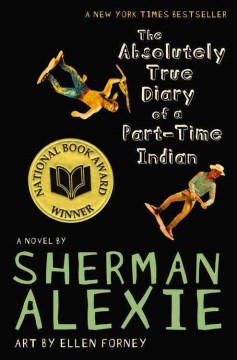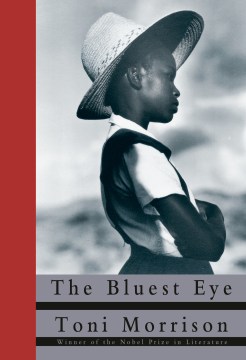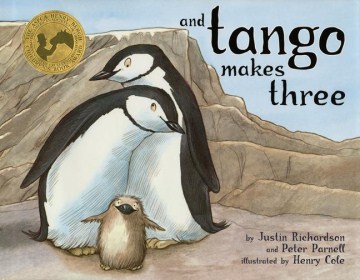Perhaps I am staring off on a melodramatic note, but if you’ve read any of my blogs or spoken with me for more than 4 seconds, you know I tend to lean hard into hyperbole and dramatics. And again, I’m cheating with my extremely loose use of genre this month. But the requests to censorship certain types of books are important to me as a library worker, an English professor, a member of the LGBTQIA+ community and as a person who values the free and unfettered access to the information provided at libraries. So, for these reasons, and because September 18–24, 2022, is Banned Books Week, I am making September’s Genre-of-the-Month all about some profound titles that have faced censorship attacks throughout the years.
The American Library Association publishes data every year about the most challenged and banned books. This data is not complete because the ALA relies on submissions and media statistics, but the information does provide a comparison and a way to view trends. Here is a statement from the ALA’s page regarding this year’s Banned Books Week:
In a time of intense political polarization, library staff in every state are facing an unprecedented number of attempts to ban books. ALA’s Office for Intellectual Freedom tracked 729 challenges to library, school and university materials and services in 2021, resulting in more than 1,597 individual book challenges or removals. Most targeted books were by or about Black or LGBTQIA+ persons.
Banned Books and Me
I spent the majority of my elementary school years at a small private grammar school. There were a lot of restrictions on the books we were supposed to read, the books we were begrudgingly permitted to read and the books we could absolutely not read under any circumstances. For example, we were tested at a “reading level” and could not read anything outside that level. However, I hit the highest reading level (8th grade) sometime before I got to that grade, so I ran out of books I was allowed to read from the school library very quickly. My parents, who encouraged my voracious appetite for reading, took me to the public library instead.
With very few exceptions, my parents let me check out whatever I wanted from the library. Sometimes I’d grab something that seemed too old for me, and I’d either give up part way through because it was so boring, or I’d ask my parents a question, and we’d talk it through.
I did get my first-ever after-school detention because of a book, though. You see, I was rereading the Harry Potter series for the umpteenth time. I’m pretty sure the title in question was Harry Potter and the Prisoner of Azkaban, the most recent title of the time. We were NOT allowed to read those types of books at my private school, and when I brought my public library copy along with me to school one day, I got in a lot of trouble.
Being the person I am, I made it my goal in life to read all the books I was told I wasn’t allowed to. To this day, well over 20 years later, I still read all the books on the annual “Top 10 Most Banned and Challenged” list from ALA. Suddenly I was reading about people different than me, new worlds, new mythologies, and I became a new person. I firmly believe that without this kind of exposure to different writings and perspectives, I wouldn’t be the open-minded, inquisitive person I am today. I’d like to share some of the titles that affected me most profoundly.
Reading Recommendations for Banned and Challenged Books
The Absolutely True Diary of a Part-Time Indian
Author: Sherman Alexie
Reason for Challenge/Ban: profanity, sexual references and use of a derogatory term
Where to Find it: 2nd floor, Vortex
The Absolutely True Diary of a Part-Time Indian is a semi-autobiographical novel. Alexie pulls from his experiences as an Indigenous-American man, using humor to confront some stark realities. This book is also the MOST CHALLENGED book of the past decade (2010-2019). This is the first book I ever read about an Indigenous person that was actually written by an Indigenous person. I don’t think the importance of that fact can be overstated. Sherman Alexie wrote about the very real, very painful experiences that Indigenous kids and teens deal with every single day. The Absolutely True Diary of a Part-Time Indian was first published in 2007 and remains poignant, socially relevant, profound and important to this day.
The Bluest Eye
Author: Toni Morrison
Reason for Challenge/Ban: because it depicts child sexual abuse and was considered sexually explicit
Where to Find it: 3rd floor, Fiction
Published first in 1970, The Bluest Eye by Toni Morrison continues to be challenged year over year. The book deals with racism and colorism, as well as the sexual abuse of a child. These are heavy, heavy topics, I know. However, Morrison was an incredible wordsmith, and her storytelling is not glorifying. Instead, she’s attempting to confront the very real history of racism, colorism, and abuse that Black people have faced in this country since its inception. Why are blue eyes considered more beautiful than brown? What does it do to children to hear that message over and over again: that blue eyes are the beauty standard, and you cannot be beautiful without them?
And Tango Makes Three
Author: Justin Richardson and Peter Parnell; Illustrator Henry Cole
Reason for Challenge/Ban: anti-family, homosexuality, unsuited to age group
Where to Find it: 1st floor, Children’s Department
And Tango Makes Three was originally published in 2005. I was in high school at the time, and even then, I knew I only had a 50/50 chance of being able to marry the person I loved when I grew up. Thankfully, in 2015 the Supreme Court enacted the Marriage Equality Act, which allowed me to legally marry my spouse. But I spent so much of my life being told by the media that my identity was inappropriate, inherently sexualized and therefore not ok to talk to children about, wrong, or otherwise disgusting. And Tango Makes Three was the first time, even as penguins, I got to see a family with two dads.
Final Thoughts
I take censorship very seriously. Part of what drew me to library work is that we are a beacon of information access. Libraries are supposed to be free from bias. We present and collect titles across a wide range of identities and backgrounds. Book bans are inherently the opposite of what we should be doing as an open-minded and inclusive culture. And we limit our real world when we claim that certain identities are inappropriate, or that depictions of real experiences are too violent, or that discussions of racism and institutionalized disparities are unfair or uncomfortable for powerful people or people who have suffered in different social structures.
We do not make the dark moments go away by refusing to speak about those pieces of our past, present or future. I refuse to believe that I am a lesser person because I am transgender, or queer, or mentally ill, or any other piece of my identity that is frequently flagged as “inappropriate content” in these banned books lists. I am not trans, or queer, or mentally ill or any of these things because of the books I read, but I did eventually grow into a happy, well-adjusted person in part because of the books I’ve read.




